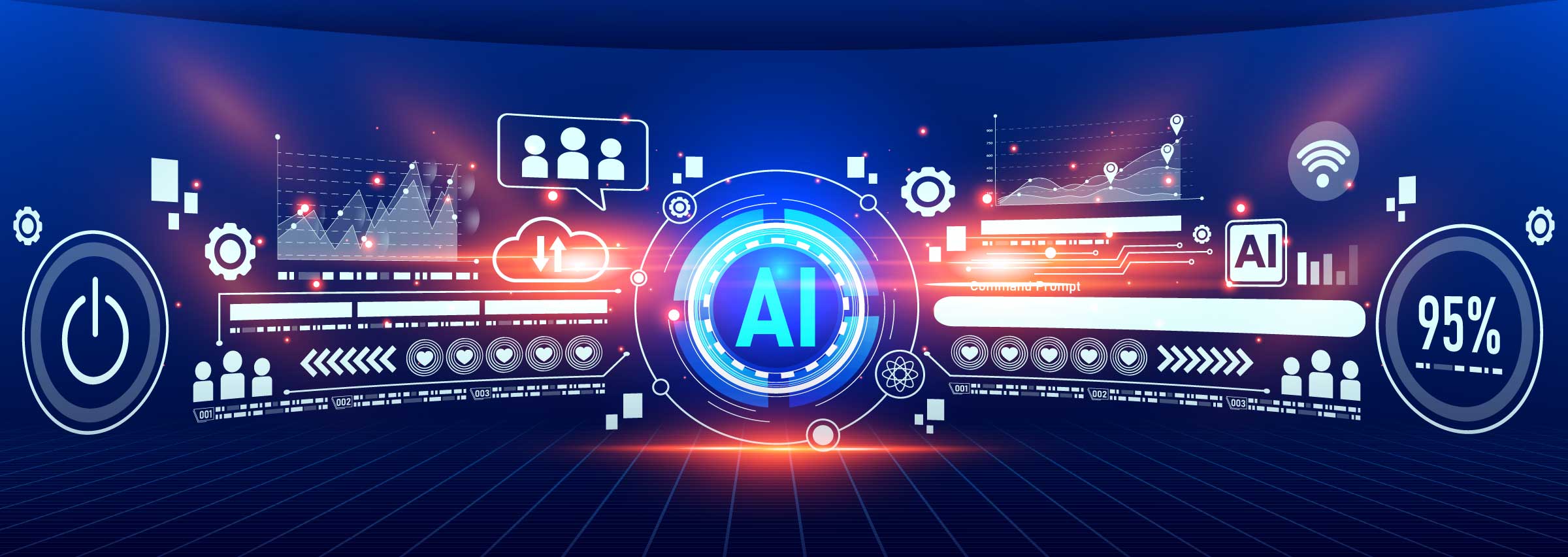In the current competitive digital environment, personalization has become a necessity rather than a luxury. However, it is not easy to build and execute effective personalization strategies. Generic messaging based on surface-level data fails to connect with buyers in a meaningful way. What businesses truly need is a way to customize experiences that resonate on an individual level, and this is where the convergence of intent data and Generative AI (GenAI) offers tremendous potential.
The rise of Generative Artificial Intelligence (GenAI) and Large Language Models (LLMs), such as ChatGPT has sent shockwaves across industries and businesses worldwide. We have all felt the impact. However, these disruptions have unlocked new capabilities, efficiencies, and opportunities while simultaneously upending established structures, workflows, governance, and operational norms.
AI-powered cyberattacks are becoming an increasingly sophisticated threat in cybersecurity. As artificial intelligence (AI) tools enhance the capabilities of malicious actors, traditional defence mechanisms struggle to keep up with evolving threats. Preventing AI-driven attacks requires a multi-faceted approach that combines advanced technology, human expertise, and global collaboration.
AI-Powered Threat Landscape
The e-commerce industry is at the forefront of a digital transformation, powered by Artificial Intelligence (AI). From crafting personalized shopping journeys to optimizing backend operations, AI is unlocking new opportunities for online retailers. But how is this technology shaping the way customers shop and businesses grow? Let’s explore.
The Growth of AI in E-Commerce
Let us reflect on the evolution of customer service technology. In the past, chatbots were ubiquitous on websites and customer support lines, often leading to frustrating interactions reminiscent of a guessing game with a rather simplistic program. However, these outdated chatbots have now been largely replaced by AI agents, which represent a significant advancement in customer service capabilities. AI agents are not only more sophisticated but also exhibit a level of responsiveness that far surpasses their predecessors.
Top retailers are exploring generative AI as a potential solution to some of the sector's most significant challenges. They are utilizing this technology to produce product descriptions and other content for websites, generate conversational responses for customer and employee interactions, tailor marketing efforts, and even synthesize customer reaction to improved product offerings and marketing strategies.
Artificial intelligence (AI) is proving to be a major trend rather than a passing fad. Gartner suggests that by 2026, over 80% of enterprises are expected to deploy some form of generative AI APIs or applications.
In the US many companies are grappling with the challenge of finding certified accounting professionals. This has even led to potential errors in accounting by over 720 companies, including Advance Auto Parts Inc and LegalZoom.com, an online legal services provider. These companies have officially cited insufficient accounting staff as the reasons for their accounting errors.
In today’s business landscape, Artificial Intelligence (AI) holds a significant presence across various critical functions, including customer service, sales, marketing, supply chain, manufacturing, finance, and human resources. Embracing AI can lead to substantial improvement in operational efficiency and provide businesses with a competitive edge.
Virtual Reality (VR) is becoming integral to digital transformation strategies, and there is a noticeable rise in budgets allocated for Augmented Reality (AR). The current market demands AR applications that transcend beyond leisure, tourism, or marketing, aiming for affordability for users. Notably, companies are incorporating Artificial Intelligence (AI) into AR solutions.
U.S.A
Missouri, Headquarters
14567 N Outer Forty Road, Ste 475
Chesterfield, Saint Louis, MO 63017
Middle East
Dubai, UAE
Burlington Tower, 18th Floor, Ascendris Business Center Suite 16, Business Bay, Dubai, UAE 121907
India
Hyderabad
Q City, B- Block, 1st Floor 109,110,111/112, Serilingampally, Nanakramguda, Hyderabad, Telangana 500 032.
Bhubaneswar
7th Floor, NSIC-IMDC Building, Dharmapada Bhawan, IDCO Plot No-6, Block-D, Mancheswar Industrial Estate, Bhubaneswar-751 010











